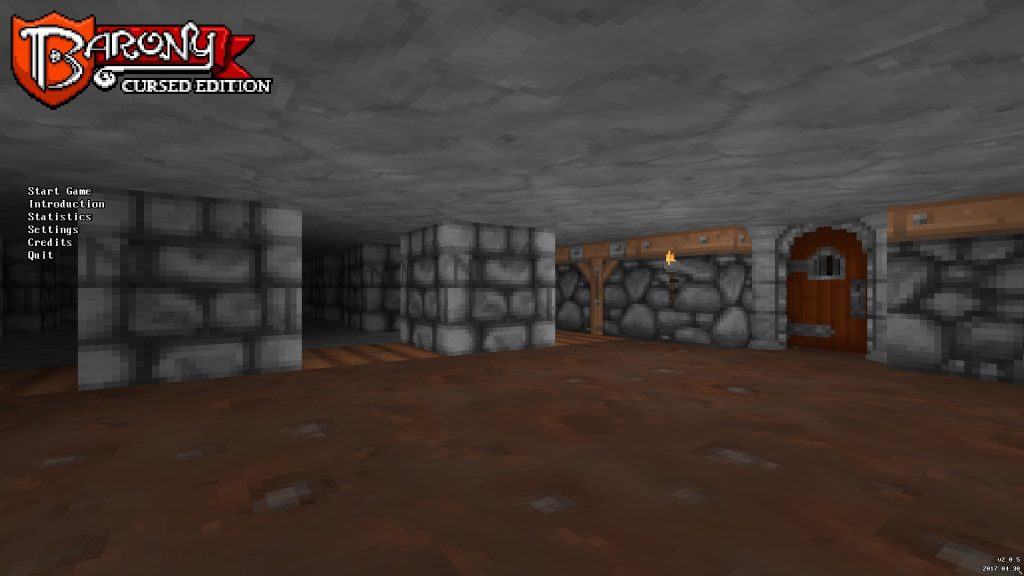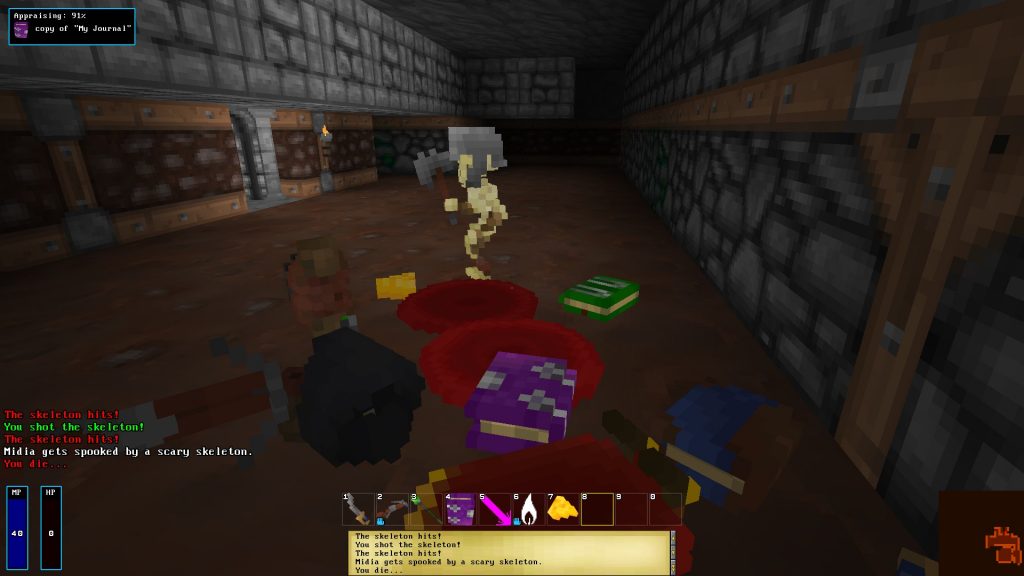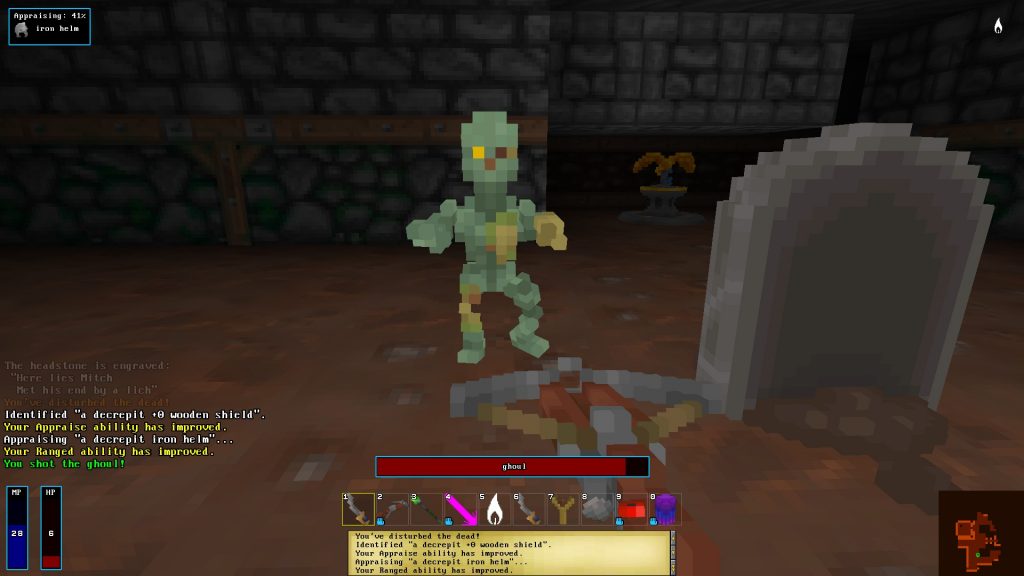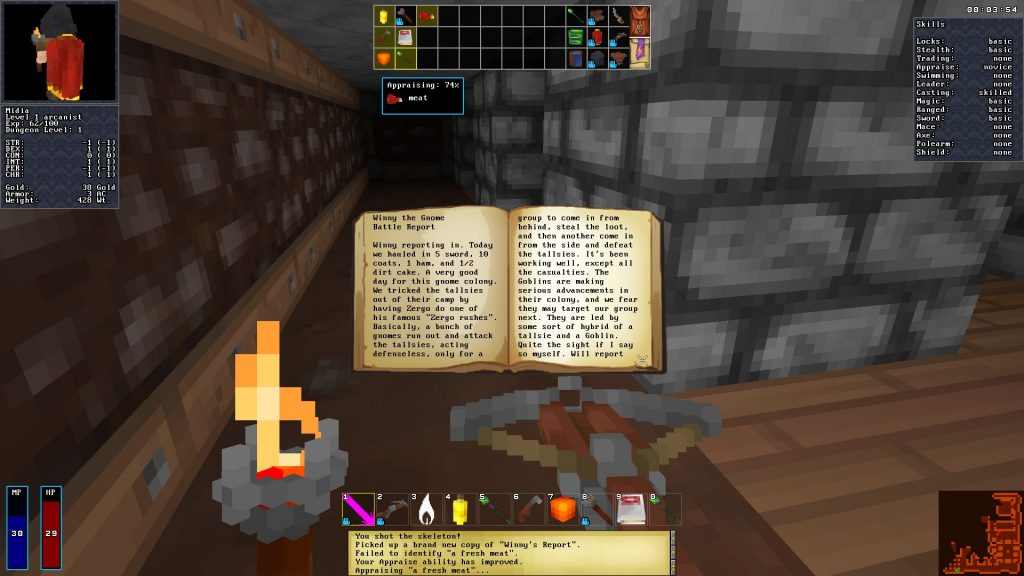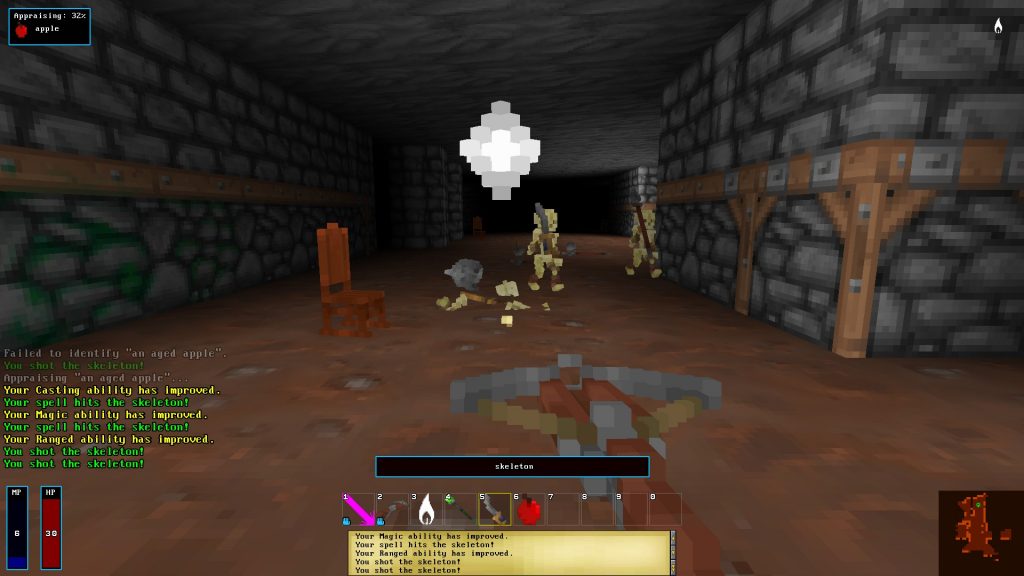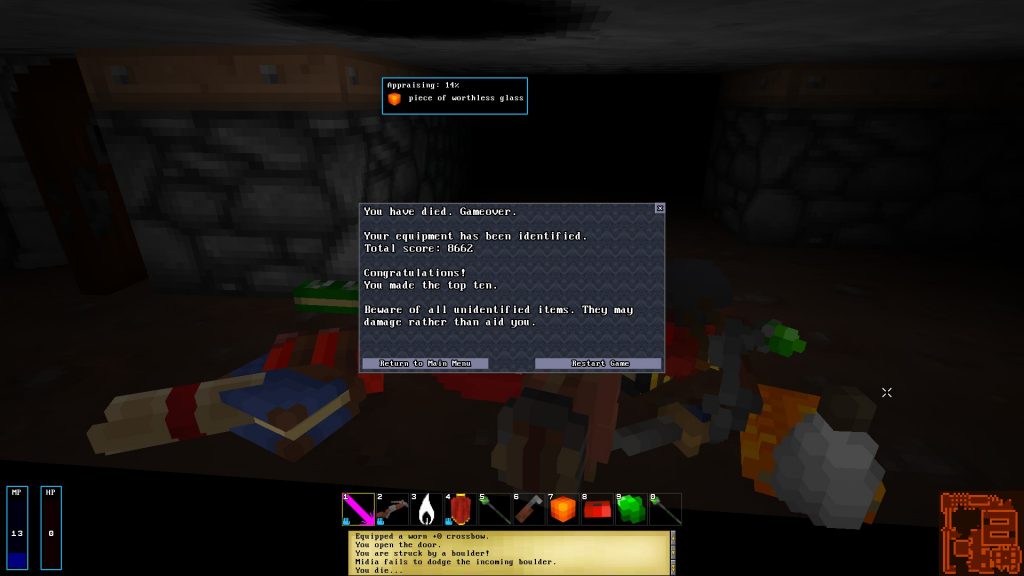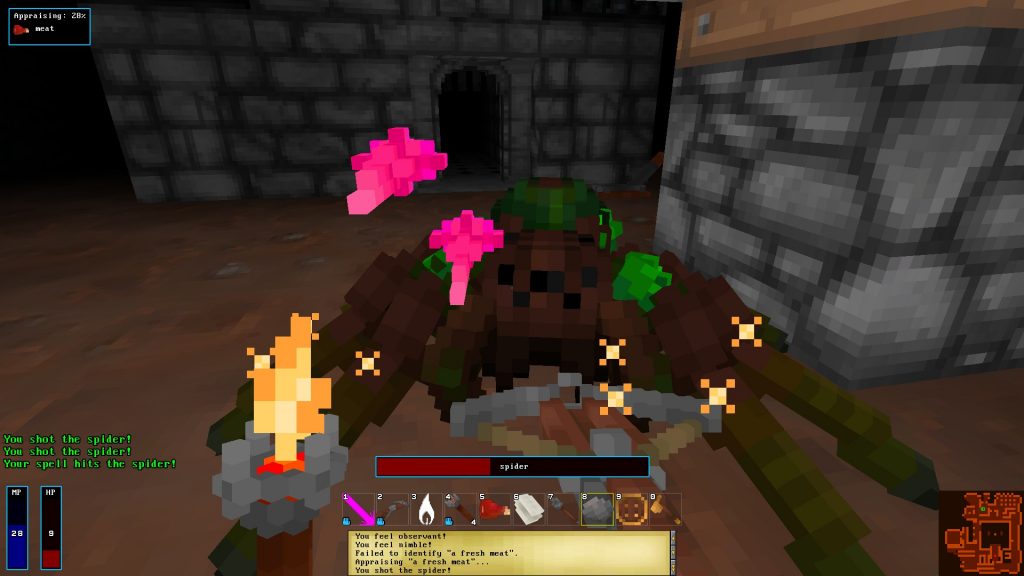Perma-death? Multiplayer? Classes, stats and real-time combat? Oh, and endless piles of cheese found in the mine? All this and more in…
Barony is an excellent roguelike. Turn on the game and you’ll be dying within minutes (if not seconds) being eaten alive by rats, skeletons or giant spiders. Something that’s important of any difficult game is a feeling of fairness–the player needs to understand why they died and have a relative understanding of what they could have done to prevent it. RNG should play a role in the game to keep things interesting, but the player generally should not feel as if they are completely at its mercy–player input must matter. This is where many roguelikes shine and others fail. Barony succeeds at both; even the early deaths in the game serve as understandable teaching instruments, generally in the form of “enemies are aggressive and you’ll need to be on guard at all times.” Likewise, RNG feels present, but never ultimately fate-determining.
As far as roguelikes are concerned, you won’t encounter anything too far-fetched in Barony. Enemies, traps, dungeons and items are randomized. All items are unidentified upon picking them up and have a weight which slows you down and increases the need to eat. Nethack fans will recognize boulders can be pushed, fountains that can be activated for wildly random effects and scrolls with gibberish names that will either aid you or erase your memories. More general to most roguelikes these days, you’ll also need to manage the need to eat, picking locks, shopkeeper trades and trap doors that you can’t go up through once you’ve descended.
So what makes Barony worth playing? Simply put, it’s a first-person roguelike that happens in real-time. This changes everything. Suddenly, you have much less time to think about your actions whilst in the dungeon. Do you take the time to read up on all the items you just grabbed from the chest now? If you do, will you get jumped by a monster from behind while you have your menus open? Even if you find a safe place behind closed doors, do you take the time to thoroughly read through all of your gear, or do you just skim through it? Each moment you dwindle longer, your hunger grows.
But real-time leaves you with several benefits that a skilled player can use to their advantage. The first and obvious tool is kiting. Admittedly, the normal means of kiting have been limited by making the player’s backwards movement a fraction (around 20%) of the normal walking speed, but in times of dire need the player can turn around and high tail it to the edge of the room to get a bit more space. Real-time also means that a fast player will benefit more than a slower one–your own speed will benefit you in the form of more ground covered with less food needed. Alternatively, if you have an abundance of food, you can wait it out to heal whilst perusing some of your more text-heavy items. Lastly, a player must consider how weight affects them in a different light. Each pound the character holds slows down their real-time movement, which not only makes you take more damage if you rely on ranged weapons (since you can’t move as fast to back away) but also affects how fast you can explore your environment, which results in more food needed. I quickly learned that hoarding in this game is heavily punished for those that do not rely on the Strength stat.
The item appraisal function is also quite interesting–you set one item in your inventory to be “appraised” (identified) through your natural ability to do so. After an amount of time has passed that has been lengthened or shortened depending on your stats, the game rolls a die to determine whether or not your appraisal was successful. If it is, the game moves on to the next unidentified item in your inventory and continues the process (you can manually select an item if you prefer). If unsuccessful, it stays on the same item and tries again.
Barony seems like a lot of fun, and that’s not to say anything of whatever multiplayer capabilities it has. It’s got enough roguelike traits to be challenging and familiar, but the first-person and real-time nature add a freshness to it and certainly make it feel less dry than your traditional top-down take-turn version. First impression is Tier 1–hopefully there’s plenty of content for future progression.
